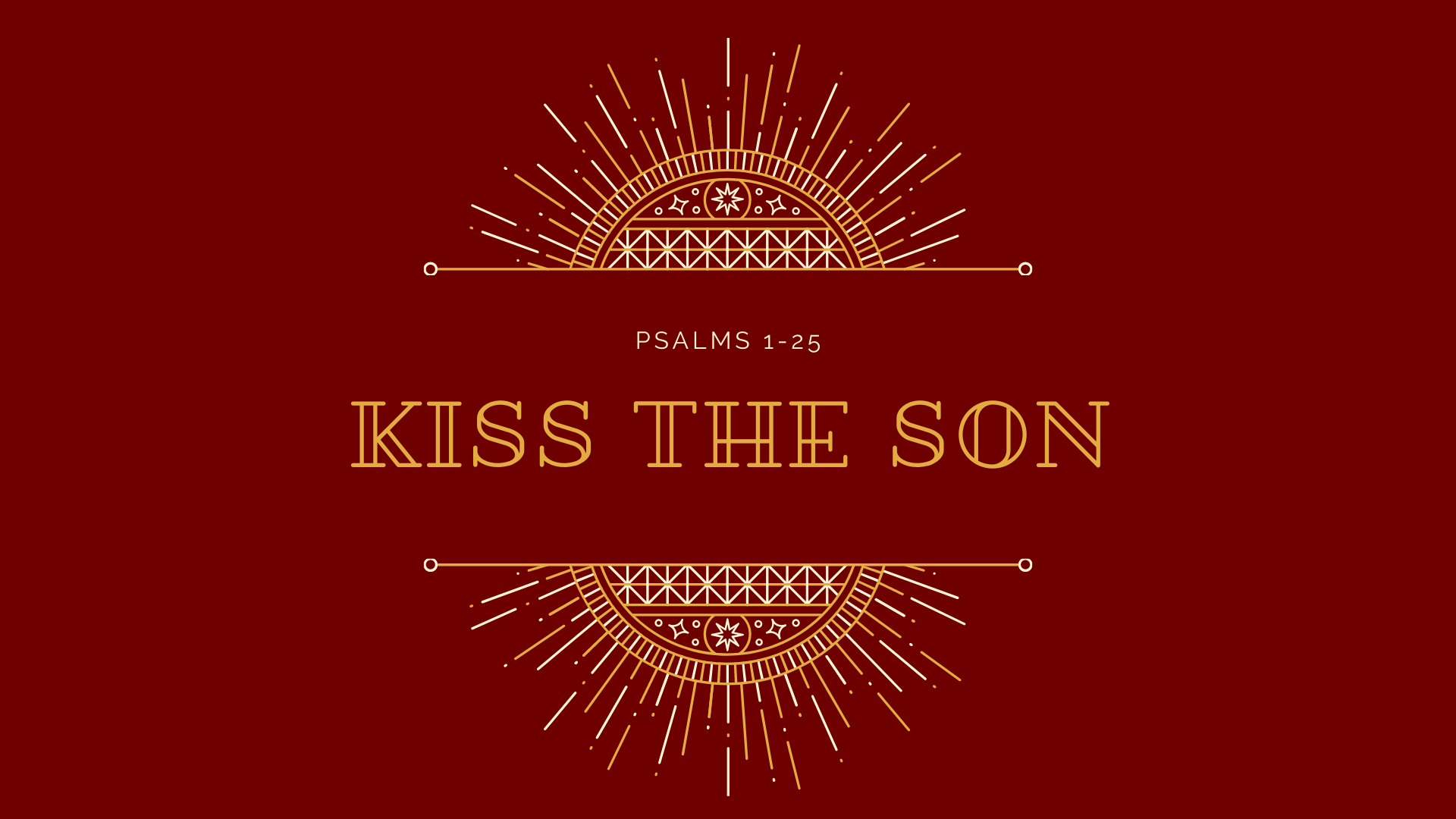An Introduction to "Kiss the Son"
An Introduction to “Kiss the Son” and the Book of Psalms
This past Sunday (July 11th, 2021) we began a new series on the first 25 Psalms, entitled “Kiss the Son.” This title comes from the 12th verse of Psalm 2 and speaks of Christ. To see Christ in the Psalms is the aim of this series.
Why would we make a series on the book of Psalms all about Jesus? At GraceLife our goal is always to land our messages on Christ but there is a deeper reason. We began this series by taking a quick stop in the New Testament book of Luke. You see it is Jesus who tells us what the Psalms were actually about. The Psalms are not just simply poems and songs of worship, though they are indeed wonderful poems and songs. Let’s see what Jesus tells us.
Then he said to them, “These are my words that I spoke to you while I was still with you, that everything written about me in the Law of Moses and the Prophets and the Psalms must be fulfilled.”
Luke 24:44
The Psalms Point to Christ
To our detriment the Psalms and the rest of the Old Testament are mostly viewed as a moral checklist of what to do and not to do. As though to say, if you do these things, you will be righteous. The problem with that way of viewing the Scriptures is that we continually fall short in our efforts to do these things to be righteous. The primary purpose of the Old Testament is to point to and bear witness of the coming savior, Jesus Christ, who alone could do these things.
“You search the Scriptures because you think that in them you have eternal life; and it is they that bear witness about me.”
John 5:39
The entirety of Scripture is about Christ. Alistair Begg said, “The Bible is a book about Jesus, in the Old Testament he is predicted, in the Gospels he is revealed, in the Acts he is preached, in the epistles he is explained, in the book of Revelation he is expected.”
The message of the Bible is the story of God redeeming people, dead in their sin, through the work of his son, Jesus Christ.
This should heighten our love for the Word and for a book such as Psalms. It is poetic and beautiful and it is all about Jesus. By embracing what its truly about we can have a deeper love and appreciation for God’s Word. The early reformers would say, “always a psalm in the mouth, always Christ in the heart.”
The Psalms predict and foretell of the coming Messiah. Jesus would quote several of the Psalms to show his fulfilment of them. The Psalms also remind us of the promises of God of an eternal kingdom with an eternal King. We who are on this side of the work of the Cross know that eternal King to be Jesus.
Broadly speaking the Psalms are a heart cry of God’s people in times of praise, lament, in need of help, and more. Yet, these cries of God’s people find their answer and satisfaction in Jesus. By seeing and savoring Christ in the Psalms we find that it is Christ himself who answers these heart cries by providing all we that have need of. He knows the depths of lament by having suffered great agony on the Cross for the forgiveness of our sins. His substitutionary work of salvation gives us reason to praise and though we are law breakers, he was not. He fulfilled the law and now we are also seen by God as law keepers, by being in Christ, united with Him in his death, burial, and resurrection.
Who Wrote the Psalms?
The Holy Spirit is the ultimate author though he worked through a variety of authors. About half of them were written by David. 73 of which are directly attributed to him and couple of others were likely written by him. Other authors include the Sons of Korah, Asaph, Solomon, and Moses. Other psalms do not identify the author. These individual Psalms were collected into what became the Book of Psalms sometime after the exile to Babylon.
Praise
Where do we get this word, Psalms? Douglas Sean O’Donnell writes, “Our English title, “The Psalms” comes from the Greek word psalmos, which is a translation of the Hebrew word mizmor (a word related to a verb meaning “to play a stringed instrument”). The traditional Hebrew name for the book is tehillim (“praises”), which is related to the word “hallelujah” (that is, “praise Yahweh”).” [1]
Throughout the Psalms we see the response of God’s people is praise. In times of joy and in times of lament, we can praise. We have much to celebrate in what Christ has done. We can praise the righteous man spoken of in Psalm 1. We can praise the Son, our King, in Psalm 2. Jesus is the fulfillment of the Psalms and so we can read this book through the lens of the Gospel and praise.
This blog taken from the first message in the series, “Kiss the Son.”
View or listen to that message from this series here, the Righteous and the Wicked.
[1] Douglas Sean O'Donnell, Knowing the Bible: Psalms (Crossway, 2014), 11.

